第39章 Letter XXVI(3)
When the frank and independent appearance is found in man separately,or in a whole people,it may be inferred they have mind,taste,and all prerogatives connected with them.In this case,the ideal will be seen to govern real life,honour triumphing over fortune,thought over enjoyment,the dream of immortality over a transitory existence.
In this case public opinion will no longer be feared and an olive crown will be more valued than a purple mantle.Impotence and perversity alone have recourse to false and paltry semblance,and individuals as well as nations who lend to reality the support of appearance,or to the aesthetical appearance the support of reality,show their moral unworthiness and their aesthetical impotence.Therefore,a short and conclusive answer can be given to this question -How far will appearance be permitted in the moral world?It will run thus in proportion as this appearance will be aesthetical,that is,an appearance that does not try to make up for reality,nor requires to be made up for by it.The aesthetical appearance can never endanger the truth of morals:wherever it seems to do so the appearance is not aesthetical.
Only a stranger to the fashionable world can take the polite assurances,which are only a form,for proofs of affection,and say he has been deceived;but only a clumsy fellow in good society calls in the aid of duplicity and flatters to become amiable.The former lacks the pure sense for independent appearance;therefore he can only give a value to appearance by truth.
The second lacks reality,and wishes to replace it by appearance.Nothing is more common than to hear depreciators of the times utter these paltry complaints -that all solidity has disappeared from the world,and that essence is neglected for semblance.Though I feel by no means called upon to defend this age against these reproaches,I must say that the wide application of these criticisms shows that they attach blame to the age,not only on the score of the false,but also of the frank appearance.And even the exceptions they admit in favour of the beautiful have for their object less the independent appearance than the needy appearance.Not only do they attack the artificial colouring that hides truth and replaces reality,but also the beneficent appearance that fills a vacuum and clothes poverty;and they even attack the ideal appearance that ennobles a vulgar reality.
Their strict sense of truth is rightly offended by the falsity of manners;unfortunately,they class politeness in this category.It displeases them that the noisy and showy so often eclipse true merit,but they are no less shocked that appearance is also demanded from merit,and that a real substance does not dispense with an agreeable form.They regret the cordiality,the energy,and solidity of ancient times;they would restore with them ancient coarseness,heaviness,and the old Gothic profusion.By judgments of this kind they show an esteem for the matter itself unworthy of humanity,which ought only to value the matter inasmuch as it can receive a form and enlarge the empire of ideas.Accordingly,the taste of the age need not much fear these criticisms,if it can clear itself before better judges.Our defect is not to grant a value to aesthetic appearance (we do not do this enough):
a severe judge of the beautiful might rather reproach us with not having arrived at pure appearance,with not having separated clearly enough existence from the phaenomenon,and thus established their limits.We shall deserve this reproach so long as we cannot enjoy the beautiful in living nature without desiring it;as long as we cannot admire the beautiful in the imitative arts without having an end in view;as long as we do not grant to imagination an absolute legislation of its own;and as long as we do not inspire it with care for its dignity by the esteem we testify for its works.